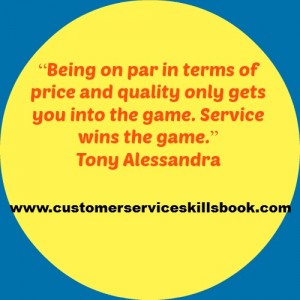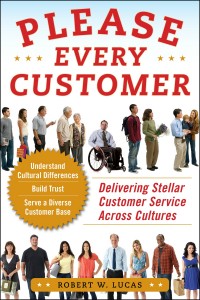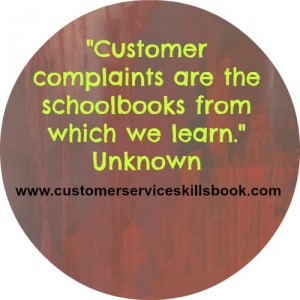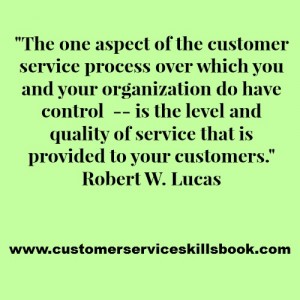Customer Service Excellence Quote – Tony Alessandra
“Good customer service is hard to find today.” How many times have you heard that statement? As a service provider (and we all are in any organization of more than one person since we all have internal customers), your goal should be to prepare to deliver excellent customer service to everyone with whom you have contact throughout the day. Anything less is inviting a breakdown in the customer-service provider relationship and is going to ultimately cost you and your organization. By gaining the knowledge and skills needed to interact with a diverse global customer base, you can potentially set up a win-win situation for yourself and your customers.
As an author and motivational speaker, Tony Alessandra puts it:
“Being on par in terms of price and quality
only gets you into the game.
Service wins the game.”
Tony Alessandra
For ideas and strategies on how to create a customer-centric organization and deliver excellent customer service, get a copy of Customer Service Skills for Success.
Learn All About Robert W. ‘Bob’ Lucas Now and Understand Why He is an Authority in the Customer Service Skills Industry
Robert W. ‘Bob’ Lucas has been a trainer, presenter, customer service expert, and adult educator for over four decades. He has written hundreds of articles on training, writing, self-publishing, and workplace learning skills and issues. He is also an award-winning author who has written thirty-seven books on topics such as, writing, relationships, customer service, brain-based learning, and creative training strategies, interpersonal communication, diversity, and supervisory skills. Additionally, he has contributed articles, chapters, and activities to eighteen compilation books. Bob retired from the U.S. Marine Corps in 1991 after twenty-two years of active and reserve service.
Make Money Writing Books: Proven Profit Making Strategies for Authors by Robert W. Lucas at Amazon.com.
The key to successfully making money as an author and/or self-publisher is to brand yourself and your company and to make yourself and your book(s) a household name. Part of this is face-to-face interaction with people at trade shows, library events, book readings, book store signings, blogging or guest blogging on a topic related to their book(s). Another strategy involves writing articles and other materials that show up online and are found when people search for a given topic related to a topic about which the author has written.
If you need help building an author platform, branding yourself and your book(s) or generating recognition for what you do, Make Money Writing Books will help. Bob’s popular book addresses a multitude of ideas and strategies that you can use to help sell more books and create residual and passive income streams. The tips outlined in the book are focused to help authors but apply to virtually any professional trying to increase personal and product recognition and visibility.
In my book Customer Service Skills for Success, I define customer service as “the ability of knowledgeable, capable, and enthusiastic employees to deliver products and services to their internal and external customers in a manner that satisfies identified and unidentified needs and ultimately results in positive word-of-mouth publicity and return business.”








